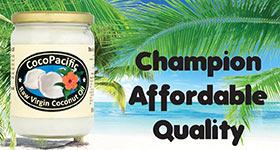|
|
by Damien Downing, MBBS, MSB, and Robert G. Smith, PhD |
The peer-reviewed Orthomolecular Medicine News Service is a non-profit and non-commercial informational resource – click here for a free subscription.
"Hidden danger of everyday supplements is revealed" blared the headline in the UK Daily Mail [1] - a newspaper that is well known for declaring that, for example, "coffee causes cancer" and "coffee reduces cancer risk" on different pages of the same issue. This time it is reporting on a study out of Sweden that appears to show that taking vitamin C or vitamin E supplements increases your risk of developing a cataract - by about 20% for C and 60% for E. [2] It makes a good headline, but does it make sense? Is this research? No. They didn't give anybody anything, or do anything to them, This was just a computer exercise in which they re-analyzed postal questionnaires sent to the entire male population aged between 45 and 79 in an area of Sweden, and matched the responses to another database of cataract operations. Although the title says that it is "a population-based prospective cohort study," prospective would really mean that they followed the group of subjects, the cohort, closely over a period of time, without losing many of them. In fact they simply had their computer go through some old electronic records. Nobody was interviewed, and no checks or validation exercises were carried out. No researcher met any of the men in the study, ever. Is it reliable? No. The first really serious shortcoming of this paper, the gorilla in the room, is that half the men never replied in the first place, and then the authors deliberately excluded a lot more for reasons such as diabetes - one of the other main "outcomes" of the study and a big risk factor for cataracts. Finally, they omitted to account for another few thousand people, so that in the end they were only studying 27 percent of the original population. If they had randomly selected this sample of the population that would be fine, but in fact the subjects selected themselves by bothering to fill in and return the questionnaire, or not. What were their reasons? We know not. That means that already several types of selection bias have been introduced, and all the results are now meaningless. There could even be what's known as indication bias - when cause and effect get mixed up. So, for instance, cataracts can take decades rather than years to develop, and people with early symptoms might be more likely to take supplements to ease their eyestrain. If the study goes on entirely in a computer, there's no way of telling. Is it scientifically plausible? No. The study contradicts many other studies that have shown either no effect or actual benefits of vitamin C and E for preventing cataracts and other eye diseases. Cataracts are common among older people, and it is well known that antioxidants can reduce the risk of developing them if taken long-term. Smoking, obesity, and diabetes are well-known risk factors for cataracts, and antioxidants are known to prevent the damage caused by these factors. [References below]. In one study, vitamin C supplements taken over 10 years or more reduced the risk of cataracts by about 80%.This is a huge dose-related effect, strongly suggesting the benefit of antioxidants in preventing cataracts. The effect was not apparent for short-term use, suggesting that any shorter-term study may not identify the benefit. (Jacques et al, 1997). Studies should not be viewed in isolation, because that leads to the "coffee causes cancer" and "coffee reduces cancer risk" absurdity. The effect of a discrepant study such as this is to marginally adjust the current information about risk. Let's say that based on previous studies, as listed below, we thought there was an 80 percent probability that taking vitamins would help to prevent cataracts; after this one we might revise that to 75 percent. This is known as Bayesian probability [after an English minister 300 years ago] and makes a whole lot more sense than the supposedly black-and-white, 95% confidence-interval type of statistics used here. If a gambler isn't a Bayesian he's an idiot; every hand, every throw, alters the odds. So does every study. The conclusions here are also dodgy because there is no real data on the amounts of the vitamins taken - only a guesstimate from an earlier study of 248 men - and even occasional use was tabulated as use of supplements. For this to make a substantial difference to the health outcome isn't really plausible. So, in real life? To prevent age-related diseases of the eye including cataracts, the best current advice is to lower oxidative stress by stopping smoking, reduce excess weight (diabetes again), eat an excellent diet along with a multivitamin supplement and additional supplements of vitamin C (3,000 - 6,000 mg/day in divided doses), vitamin E (400-1,200 IU of natural mixed tocoperols and tocotrienols). This will greatly help prevent oxidation of the tissues of the eye. Artificial forms of vitamin E (dl-alpha-tocopherol) are only 50% as biologically active as the natural form (d-alpha-tocopherol). Taking alpha-tocopherol alone is thought to lower the effective uptake of the other beneficial forms of vitamin E, so it's important to take the natural form of mixed (alpha-, beta-, gamma-, delta-) tocopherols. (Dr. Damien Downing is a practicing physician specializing in orthomolecular medicine in London, UK, and Dr. Robert G. Smith is a neurophysiologist specializing in eye research at the University of Pennsylvania.) References: 1. Daily Mail 23rd February 2013 2. Selin JZ, Rautiainen S, Lindblad BE, Morgenstern R, Wolk A High-Dose Supplements of Vitamins C and E, Low-Dose Multivitamins, and the Risk of Age-related Cataract: A Population-based Prospective Cohort Study of Men (2013) American Journal of Epidemiology, published online. DOI: 10.1093/aje/kws279 Vitamin C lowers cataract risk: Head KA. Natural therapies for ocular disorders, part two: cataracts and glaucoma. Altern Med Rev. 2001 Apr;6(2):141-66. [vitamin C alone or with vitamin E reduces risk of cataracts] Jacques PF, Taylor A, Hankinson SE, Willett WC, Mahnken B, Lee Y, Vaid K, Lahav M. Long-term vitamin C supplement use and prevalence of early age-related lens opacities. Am J Clin Nutr. 1997 Oct;66(4):911-6. [Huge effect, 77% - 83% decrease in lens opacities] Vitamin E lowers cataract risk: Rouhiainen P, Rouhiainen H, Salonen JT. Association between low plasma vitamin E concentration and progression of early cortical lens opacities. Am J Epidemiol. 1996 Sep 1;144(5):496-500. Nourmohammadi I, Modarress M, Khanaki K, Shaabani M. Association of serum alpha-tocopherol, retinol and ascorbic acid with the risk of cataract development. Ann Nutr Metab. 2008;52(4):296-8. doi: 10.1159/000148189. Seth RK, Kharb S. Protective function of alpha-tocopherol against the process of cataractogenesis in humans. Ann Nutr Metab. 1999;43(5):286-9. Engin KN. Alpha-tocopherol: looking beyond an antioxidant. Mol Vis. 2009;15:855-60. [ vitamin E likely plays a role in preventing cataracts] Smoking increases risk: Mosad SM, Ghanem AA, El-Fallal HM, El-Kannishy AM, El Baiomy AA, Al-Diasty AM, Arafa LF. Lens cadmium, lead, and serum vitamins C, E, and beta carotene in cataractous smoking patients. Curr Eye Res. 2010 Jan;35(1):23-30. doi: 10.3109/02713680903362880. Hiller R, Sperduto RD, Podgor MJ, Wilson PW, Ferris FL 3rd, Colton T, D'Agostino RB, Roseman MJ, Stockman ME, Milton RC. Cigarette smoking and the risk of development of lens opacities. The Framingham studies. Arch Ophthalmol. 1997 Sep;115(9):1113-8. Healthy diet prevents cataracts: Mares JA, Voland R, Adler R, Tinker L, Millen AE, Moeller SM, Blodi B, Gehrs KM, Wallace RB, Chappell RJ, Neuhouser ML, Sarto GE; CAREDS Group. Healthy diets and the subsequent prevalence of nuclear cataract in women. Arch Ophthalmol. 2010 Jun;128(6):738-49. doi: 10.1001/archophthalmol.2010.84. Williams DL. Oxidation, antioxidants and cataract formation: a literature review. Vet Ophthalmol. 2006 Sep-Oct;9(5):292-8. Nutritional Medicine is Orthomolecular Medicine Orthomolecular medicine uses safe, effective nutritional therapy to fight illness. For more information: www.orthomolecular.org
Click here for more articles Click here for LINKS to manufacturers of nutrition and food supplements. |








